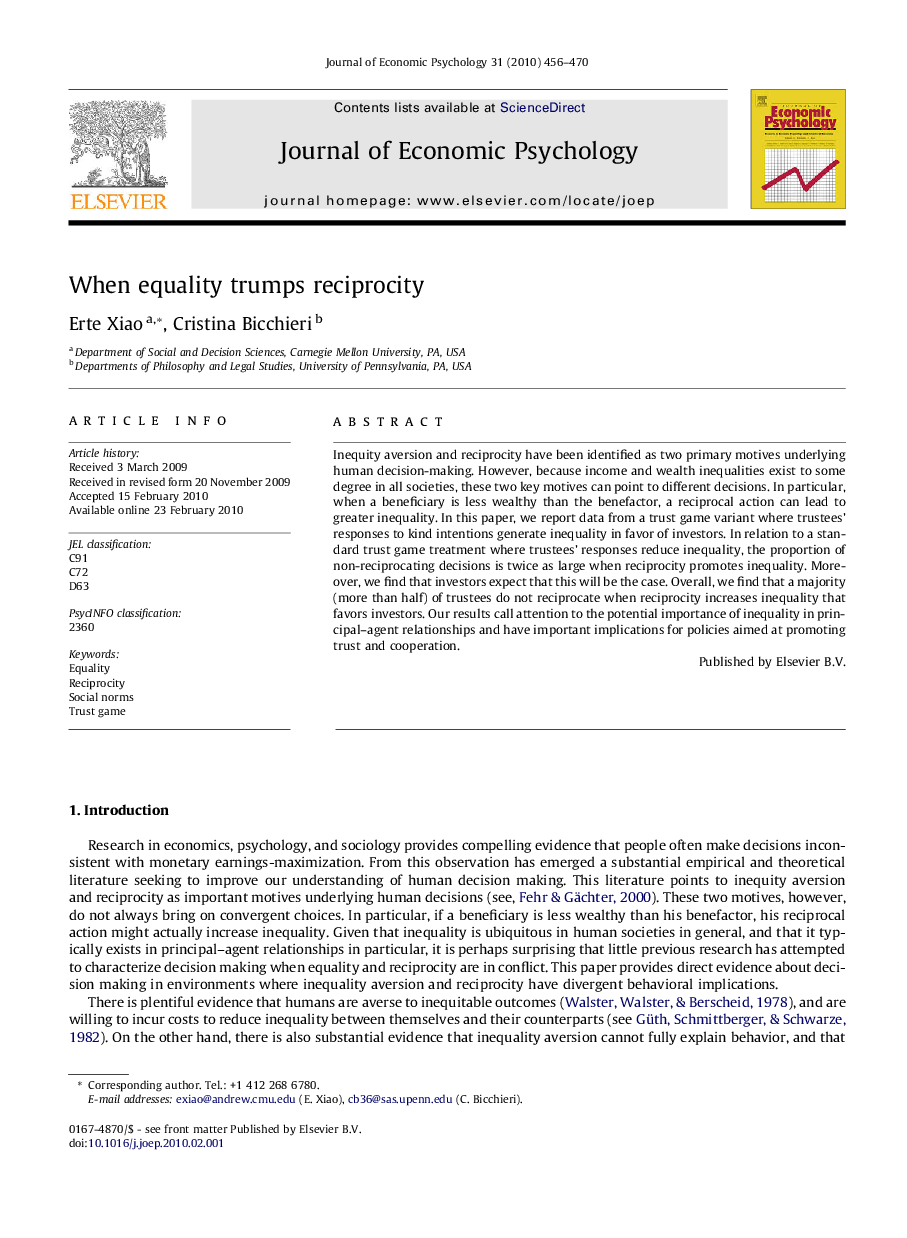| Article ID | Journal | Published Year | Pages | File Type |
|---|---|---|---|---|
| 885136 | Journal of Economic Psychology | 2010 | 15 Pages |
Inequity aversion and reciprocity have been identified as two primary motives underlying human decision-making. However, because income and wealth inequalities exist to some degree in all societies, these two key motives can point to different decisions. In particular, when a beneficiary is less wealthy than the benefactor, a reciprocal action can lead to greater inequality. In this paper, we report data from a trust game variant where trustees’ responses to kind intentions generate inequality in favor of investors. In relation to a standard trust game treatment where trustees’ responses reduce inequality, the proportion of non-reciprocating decisions is twice as large when reciprocity promotes inequality. Moreover, we find that investors expect that this will be the case. Overall, we find that a majority (more than half) of trustees do not reciprocate when reciprocity increases inequality that favors investors. Our results call attention to the potential importance of inequality in principal–agent relationships and have important implications for policies aimed at promoting trust and cooperation.
